The Deep Roots of Chinese Cooking in Thai Cuisine
Discover how Chinese cooking has shaped the gastronomic evolution of Thai cuisine!
Discover the authentic in Asian cuisine food
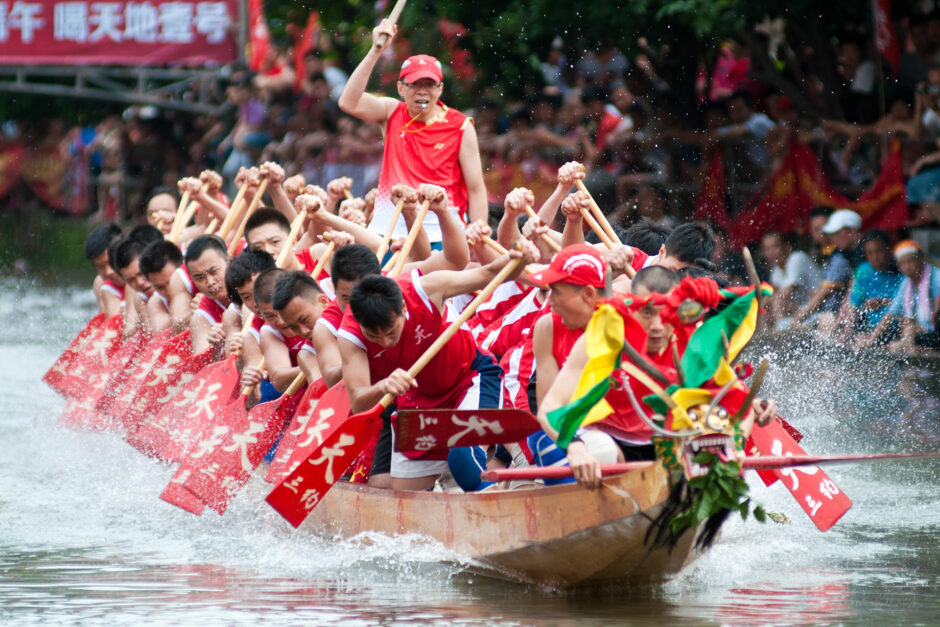
The Fifth Day of the Fifth Month in the Chinese Lunar Calendar is the Dragon Boat Festival. A communal and familial celebration that has lasted for thousands of years, with the earliest record dating back to the Spring and Autumn Period of the Eastern Zhou Dynasty, circa 770-480 BCE. Today, it remains as one of the major festivals in Chinese culture and is celebrated across China and among the global Chinese diaspora.
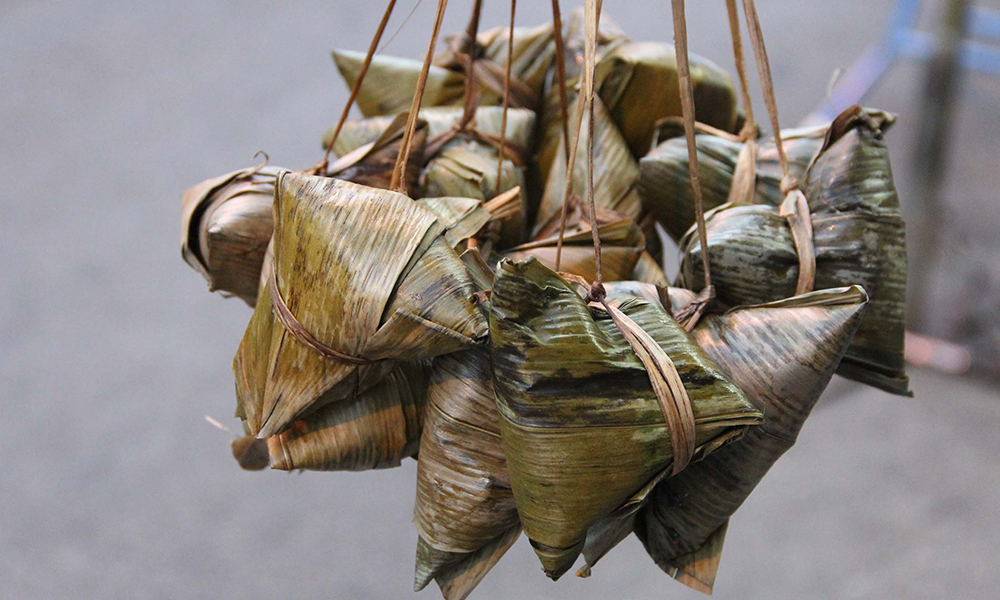
Although the exact origin is hard to pin down, Dragon Boat Festival is most widely associated with the legend of Qu Yuan, a poet minister of the Chu Kingdom during the Warring States Period, who warned his king about the impending danger of Qin invasion but was exiled for speaking out.
At the time, the Chu King sought an alliance with the Qin kingdom, and Qu Yuan’s warning became an insult to the king’s wisdom. But as Qu Yuan predicted, the Qin eventually conquered Chu during their expansion wars. Thus, in his great grief for the loss of his country, Qu Yuan jumped into the Yellow River and perished.
His deeds were well-known among his people, and so they raced their boats along the river in hopes to rescue him or recover his body. When it was clear that neither was possible, the people threw Zongzi dumplings for the fishes instead, so they wouldn’t eat Qu Yuan’s remains. Thus, the annual Dragon Boat Festival became a widely celebrated holiday over the centuries to commemorate Qu Yuan’s patriotism.
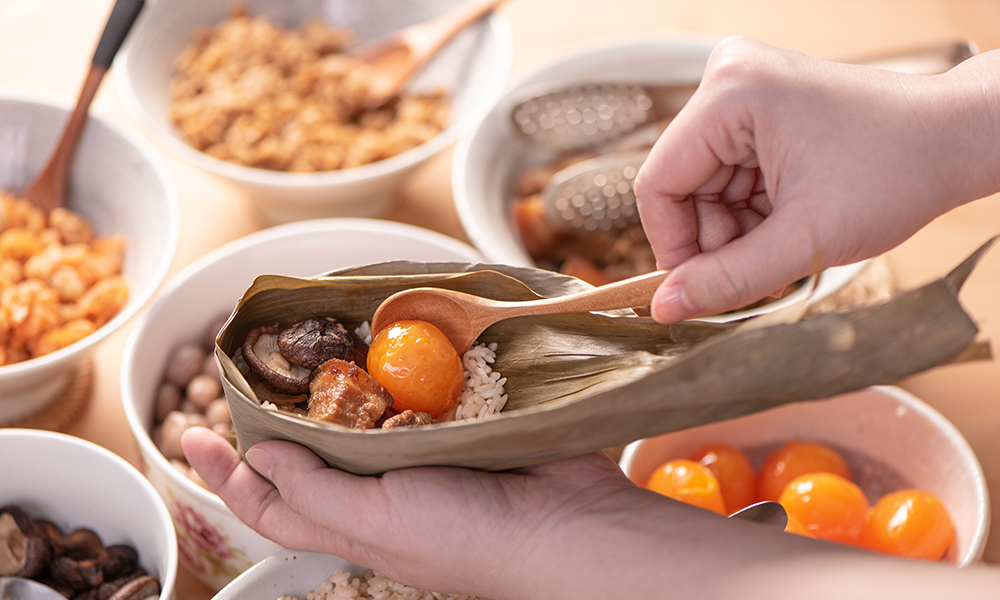
However, historians and scholars believe Qu Yuan’s legend was actually merged with a pre-existing festival dating back to earlier agrarian communities. For one, the Zongzi dumpling had been a staple food for farmers as a quick-and-easy meal between field work, long before Qu Yuan’s time. The Fifth Day of the Fifth Month in the Lunar Calendar also marks the summer solstice and wheat harvest time. Thus, the high summer sun is often represented by an auspicious dragon rising to the apex in the sky, which inspired the traditional Dragon Boat design. In fact, Dragon Boat Festival can be considered a misnomer, as its Chinese name is Duanwu, which means the ‘Start of Five’, i.e. the beginning of the fifth Lunar month.
Nevertheless, be it by lore or history, Dragon Boat Festival is a celebration of life, of banishing bad luck and sharing the joy and love of family, friends and community with an auspicious Dragon Boat Race and many flavourful festive foods.
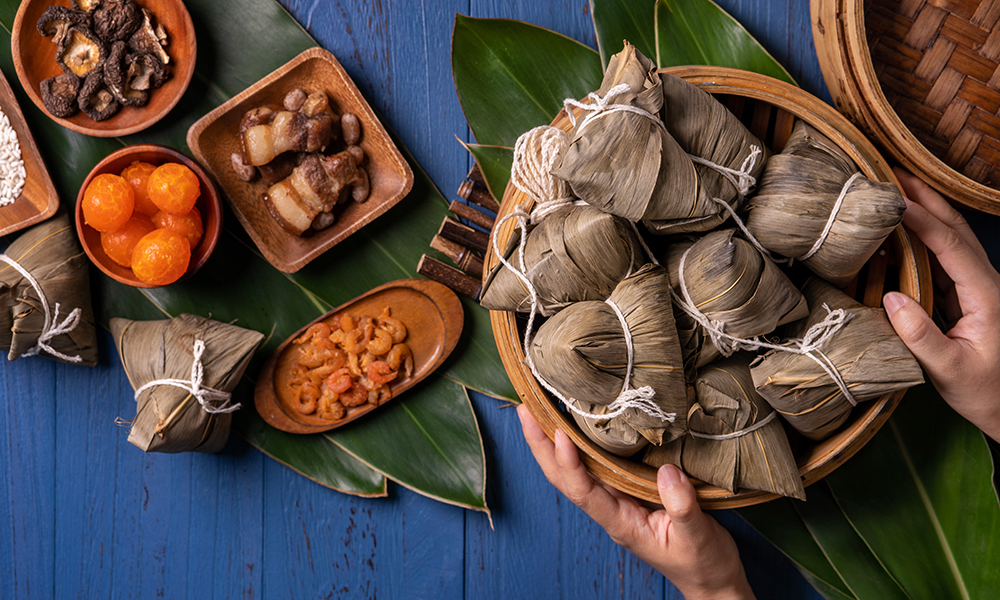
A week before the Dragon Boat Festival, traditional families would start making Zongzi dumplings at home. Glutinous rice with meaty, savoury fillings are wrapped in bamboo leaf and steam cooked. The leaf lends a refreshing aroma, while also locking in the dumpling’s rich flavours. The Zongzi-s are shared and enjoyed among loved ones or offered as gifts to friends and colleagues leading up to the Dragon Boat Festival, as well as on the day itself. Different Chinese subcultures have their own unique Zongzi recipes. Come discover them in our special Zongzi deep-dive!
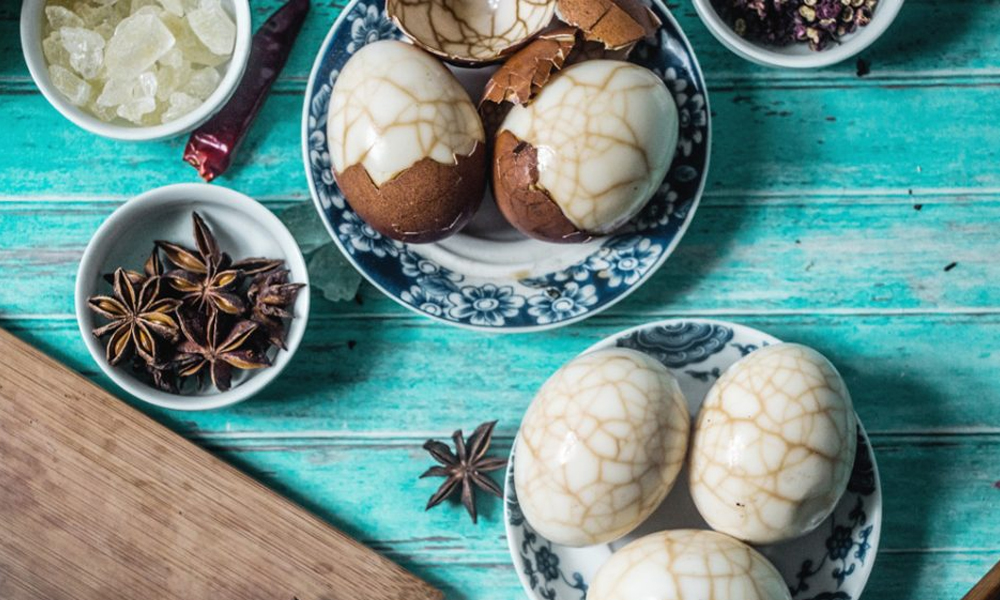
Eggs represent life in Chinese culture, and there are many unique ways to savour eggs for the Dragon Boat Festival, depending on the community. Some would steam-cook them with a garlic flavouring blend. Others may include a hard-boiled egg in meaty stews, or salted eggs in their meals. But the most popular Dragon Boat Festival egg specialty is the tea-infused egg with a tantalising herbal aroma. Mildly savoury and comforting to munch. Try it with our recipe!
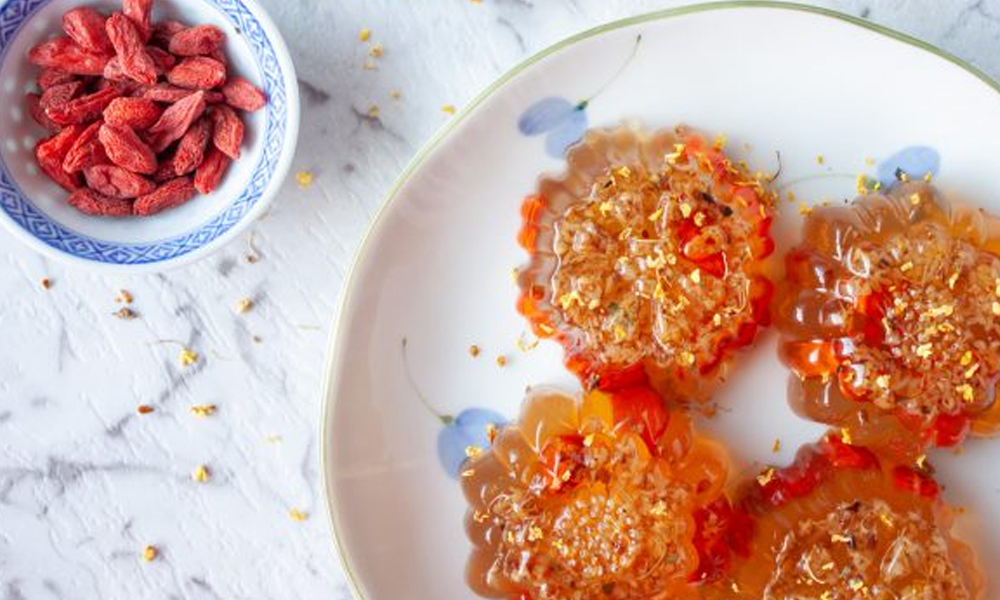
Osmanthus is an auspicious flower in Chinese culture, made into a fragrant and wholesome flavour in this beloved Dragon Boat Festival jelly dessert. Sweeten your celebration with our authentic recipe.
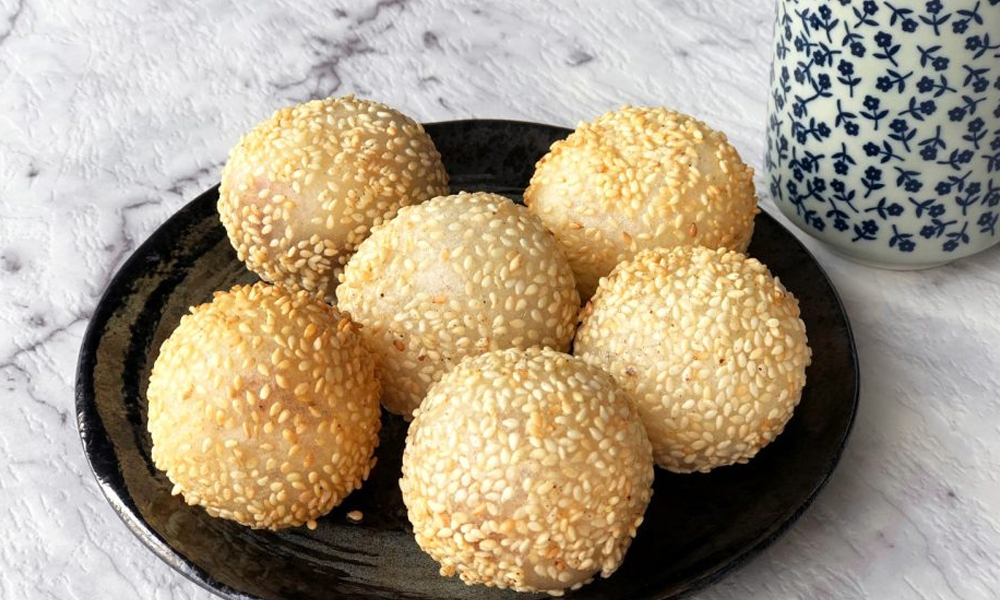
Another Dragon Boat Festival dessert is the munchable Jian Dui. Deep fried glutinous rice dough balls coated with fragrant sesame seeds, and filled with sweet red bean paste that melts in your mouth as you chew. A yummy snack to share with the whole family, best enjoyed with tea.
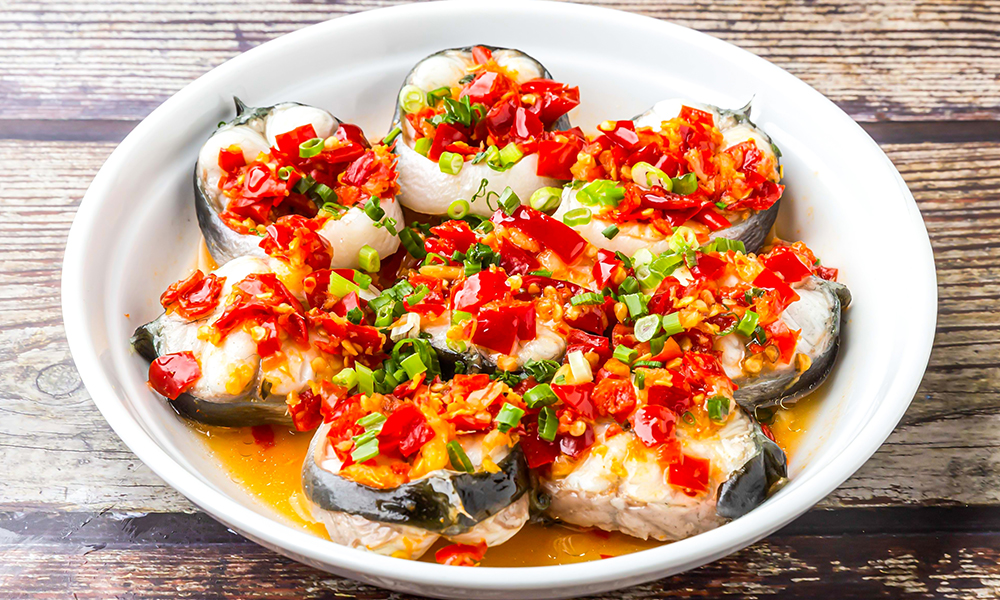
Dragon Boat Festival is deeply tied to the Yellow River, and the Asian Swamp Eels native to China has been a local delicacy for millennia in many regions. Thus, for Dragon Boat Festival, the river eels are also cooked and savoured in communal barbecues, braised delights and umami broths. The tradition is mainly practised in China, and every region has their own river eel specialty dish for the celebration.
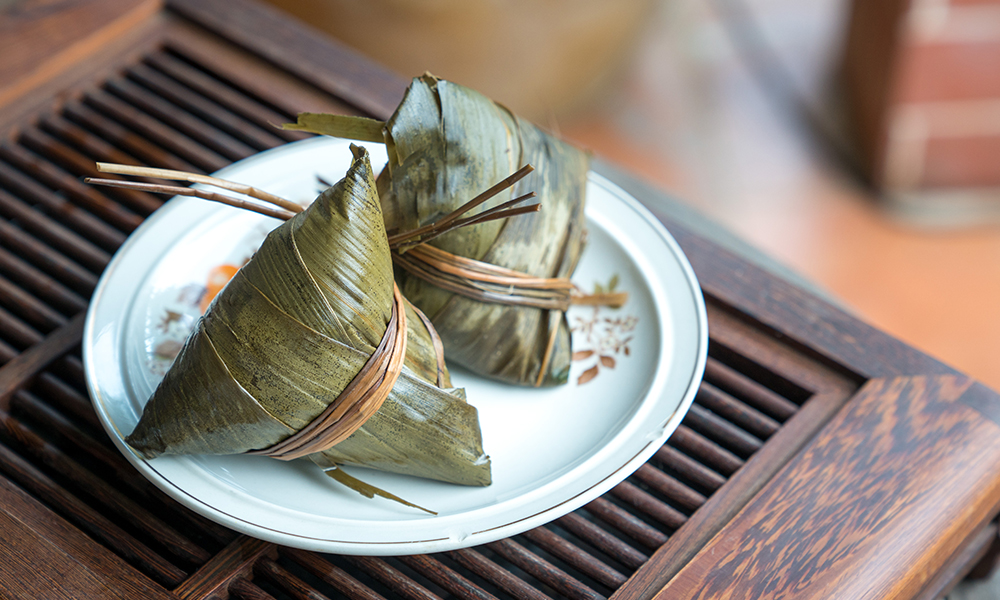
As mentioned, the Dragon Boat Festival is celebrated across the global Chinese diaspora, much like Lunar New Year and Mid-Autumn Festival. Local communities may organise festive fares, markets and Dragon Boat Races to celebrate the occasion together, with cultural showcases and a myriad of tasty foods. So be sure to check out your local event listings and join the celebration!
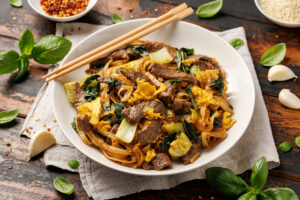
Discover how Chinese cooking has shaped the gastronomic evolution of Thai cuisine!
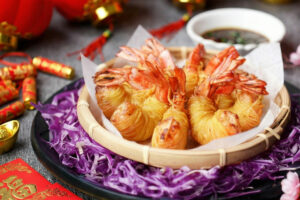
Crispy outside, savoury and tender within, these noodle-wrap prawns are sure to delight!
-300x200.jpg)
Enjoy the rosy layers of sweet Kuih Lapis with our step-by-step recipe!